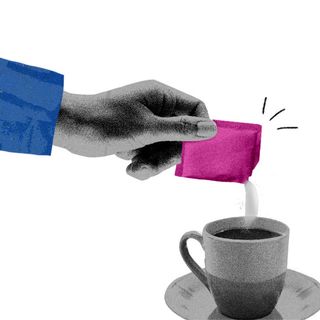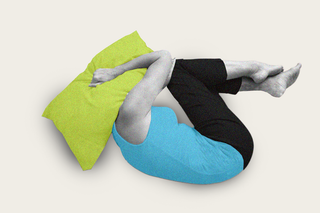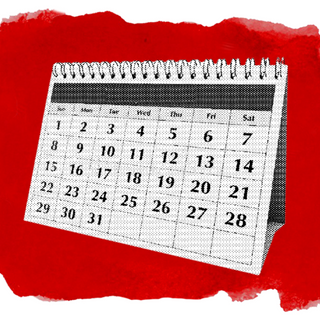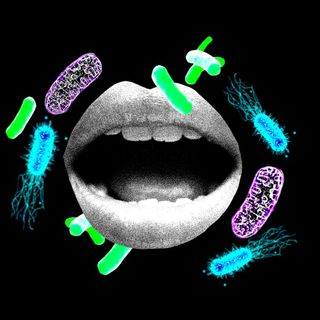
How Lack of Sleep Makes People Less Helpful, More Lonely
“How we operate as a social species — and we are a social species — seems profoundly dependent on how much sleep we are getting.”

Anecdotal evidence of poor sleep making us mean and cranky has been around for a long time — to the point where a widespread, sustained lack of sleep is increasingly normalized in society. It has, in fact, served up comedic threads in movies and sitcoms over the years. A new study, however, delves into what lies underneath the grumpiness. Hint: it’s a trait one commonly associates with the protagonist of A Christmas Carol.
“Humans help each other. This fundamental feature of homo sapiens has been one of the most powerful forces sculpting the advent of modern civilizations. But what determines whether humans choose to help one another?” notes the study. This is the question a group of researchers from the University of California, Berkeley sought to answer.
Published in PLOS Biology yesterday, the study based its findings on three experiments. The first one demonstrated, through brain scans, howlack of sleep results in diminished activity in a network of brain regions associated with our ability to empathize with people around us. In the second experiment, participants completed questionnaires to measure their individual degrees of altruism — the results correlate higher altruism scores with longer sleep durations. As part of the last experiment, the researchers analyzed data on charitable donations from 2001 to 2016. They found that the hour of sleep lost due to many regions switching over to Daylight Savings Time every spring, led to a decline in donations.
Unfortunately, as a result of sleep deprivation, all of society stands to lose — and that’s not just because it makes people more vulnerable to diabetes, obesity, heart attack, and stroke. “[T]his new work demonstrates that a lack of sleep not only damages the health of an individual, but degrades social interactions between individuals and, furthermore, degrades the very fabric of human society itself. How we operate as a social species — and we are a social species — seems profoundly dependent on how much sleep we are getting,” noted co-author Matthew Walker, a professor of psychology at UC Berkeley.
The implications of the study are critical: the cultural valorization of sleeping less has costs for not only individual health, but that of society itself.
Related on The Swaddle:
How Sleeping Next to Our Partners Can Improve Our Health and Wellbeing
Sleep deprivation increases the level of cortisol — the “stress hormone” — in our bodies. And as past research suggests, stress makes even the most empathetic among us, less kind to others. Whether that’s at the root of sleep deprivation making people less generous isn’t clear, but prima facie, it seems like a plausible explanation.
A 2018 study, published in Nature Communicationsand also co-authored by Walker, had discovered that lack of sleep also increases people’s feelings of loneliness and makes them less inclined to engage with others — by reducing activity in brain regions that otherwise boost social engagement.
“Looking at the big picture, we’re starting to see that a lack of sleep results in a quite asocial and, from a helping perspective, anti-social individual,” Walker added, speaking to its impact on society. “Sleep, it turns out, is an incredible lubricant to prosocial, connected, empath[et]ic, kind and generous human behavior. In these divisive times, if there was ever a need for a strong, prosocial lubricant to enable the very best version of ourselves within society, now seems to be it.”
A study from May also found out that warmer weathers make it harder for people to fall asleep — leaving them with long hours of tossing and turning instead. Interestingly, higher temperatures have also been associated with increased aggression and worse moods in people — none of which are associated with socially amiable behavior.
As we continue to navigate climate change-spawned rise in temperatures across the globe, the present findings sound even more alarming.
Related on The Swaddle:
Surviving the Pandemic Has Made Us Kinder, More Aware of Mental Health. Will It Last?
The findings have thrown open a range of interpretations, too. As one Reddit user wrote, “I wonder if this is why people in historically [time-consuming] professions — like CEOs, lawyers, and military personnel — are stereotyped as less kind than the general population?” Given that long work hours can lead to inadequate sleep — either due to the volume of work itself leading them to burn the midnight oil, or due to revenge bedtime procrastination, where people in high-stress, time-consuming jobs try to sneak in a few hours of ‘me’ time that their responsibilities didn’t permit them to enjoy through the course of the day — the Reddit user’s rumination, perhaps, holds some merit.
The idea that sleeplessness makes us less kind, also calls for an urgent re-examination of our present norms around work. Perhaps, our culture’s idolization of hustle culture, which determines people’s worth based on the number of hours they devote to their careers, may have a role to play in this sleeplessness debacle. “[S]ince capitalism dictates that any activity must be a productive activity, sacrificing sleep was (mistakenly) associated with the appealing sheen of hard work… [I]nside Indian households, sleep is spoken of as an antithesis to success and self-worth,” Saumya Kalia had written in The Swaddle.
Unsurprisingly, then, a 2019 study had found that India is among the most sleep-deprived countries in the world. Incidentally, in a report published last year, India ranked poorly in a global assessment of how kind people from different countries are to strangers. Worse still, according to research, India’s sleep deprivation “epidemic” may have gone further downhill since the pandemic struck.
In order to fix the present scenario — and, perhaps heal ourselves — it might be time for society to pay attention to the widespread lack of sleep as a public health crisis.
“Sleep is essential for all aspects of our physical, mental, and emotional lives,” notes Eti Ben Simon, lead author of the present study and a research science at UC Berkeley. “When sleep is undervalued in society, not only do we get sleep-deprived doctors, nurses, and students, but we also suffer from unkind and less empathic interactions on a daily basis. It is time as a society to abandon the idea that sleep is unnecessary, or a waste and, without feeling embarrassed, start getting the sleep that we need. It is the best form of kindness we can offer ourselves, as well as the people around us.”
Devrupa Rakshit is an Associate Editor at The Swaddle. She is a lawyer by education, a poet by accident, a painter by shaukh, and autistic by birth. You can find her on Instagram @devruparakshit.
Related


Why People May Be More Creative During Certain Phases of Menstrual Cycles
